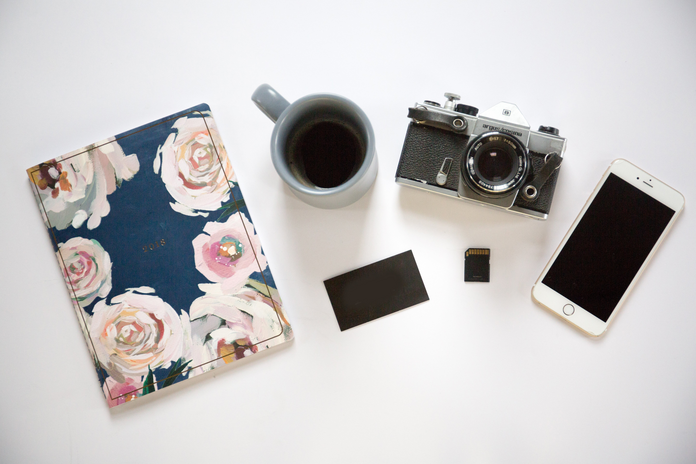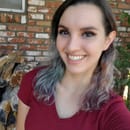Vivian Avila is a 22 year old advocate for equality. She majored in biology and graduated from Santa Clara University in 2019. Currently, she is working with Teach for America, teaching middle school math in Washington state. Vivian and I have been friends since 2nd grade and we recently sat down over Zoom to discuss Hispanic Heritage Month, mental health, college, and of course, the inspiring A.O.C. You can follow her on instagram @vivi_teaches.
Q: Why is it important to celebrate Hispanic heritage?
A: “Hispanic heritage is extremely important on an individual and community level and should be talked about and celebrated. However, giving it a month, it feels like it becomes more of a box to check off instead of becoming an ongoing conversation.”
Q: How has your Hispanic heritage influenced your life so far?
A: “When I was younger and growing up in a mostly white, rural, conservative area, I experienced some racism and microaggressions, but I don’t think I realized it or the implications until college. Meeting other Hispanic people with different backgrounds and perspectives allowed me to understand a bigger picture, and it’s influenced my work and friendships. Obviously, my heritage is an identifying factor, and even just knowing my name, you can tell I’m Hispanic. There is a bit of a spotlight effect where I feel like I need to be a good example, but I mostly see it as a motivating factor and enjoy the sense of community that comes with it, both pros and cons included.”
Q: Diversity in college? What was your experience like and what improvements do you think should be made?
A: “Santa Clara was mostly white. I don’t think Hispanics were underrepresented in the student body, but we did face a lot of overt racism and microaggressions. One of my public health teachers used to point me out and use me as an example whenever we talked about Hispanics or Mexicans. I felt out of place and gaslighted when I experienced microaggressions because I didn’t know how to explain how it made me feel, or why exactly they felt wrong. We did have a multicultural center and I was part of a latina sorority, but there was still a disconnect from the rest of campus. The campus did town halls and a campus climate survey, but most of the time it felt like they didn’t act on the information collected. I think a good place to start improvement would be to believe students when they say they experience something, and listen to learn and understand, instead of giving excuses or trying to explain why we shouldn’t feel hurt.”
Q: Who are some of your role models?
A: “Alexandria Ocasio Cortez. Seeing her in professional clothes makes me feel okay to see me wearing them too. I normally feel the weight of people’s perceptions and prejudices and experience imposter syndrome. But she makes me feel like I can look like that too and not feel out of place. I’m first generation and a latina, so dealing with the machismo and gendered binary in opinions towards ability and intelligence in general in my community, it’s been internalized and I feel the perspectives shift in my family and larger community. I went to college and I’m outspoken, so I challenge traditions and that clashes with culture sometimes, which makes me feel out of place.”
Q: How has the transition from student to teacher changed your perspective?
A: “On one hand, I’m calling things out, but on the other, I’m wondering why I have to be the one to always call things out. I’m the youngest teacher in my school, along with being Hispanic, and a woman, so there’s definitely prejudices from parents, students, and teachers. I feel the need to prove myself and go above and beyond in my work. I’m constantly questioning what more we can do, and I’ve become more aware of institutionalized racism and where it exists. The students don’t have enough role models that look like them, and I worry that I might perpetuate racism in my words or actions, and I’m trying to avoid having a White Savior complex. I constantly wonder what harm we might be doing while being unaware of it.”
Q: Activism and advocating- tell me more.
A: “When I was in school, I was more focused on proving myself. Now that I’m a teacher, I try to use it as a teaching moment. Anytime something comes up, I try to call it out. I’m always seeking new perspectives and trying to learn new things. I want to understand how institutionalized and systemic racism work, and step away from the whitewashed narrative I grew up with. I’m trying to model self-advocacy for my students and work out what that means for myself. I want them to know how to speak up because you cannot back down.”
Q: Let’s talk about mental health and self-care.
A: “The Hispanic community at large isn’t very good at discussing mental health, it like isn’t a thing, so you have to deal with not having the language to explain how or what you feel, and at the same time, you develop unhealthy coping mechanisms. I have a lot of internalized anxiety and worry. I put a lot of pressure on myself and experience imposter syndrome. I mentioned earlier before we started that I have like, an internal existential crisis everyday, and that’s a lot of worry. I recently started seeing a counselor and am working on breaking generational trauma, unlearning bad coping mechanisms, trying to avoid self-isolating and instead focus on reaching out and self-empowerment. My self care consists of drawing, spending time with my boyfriend, doing my makeup and taking time to just not worry about anything else, dance parties in my room, and sending my friends Tik Toks.”:


